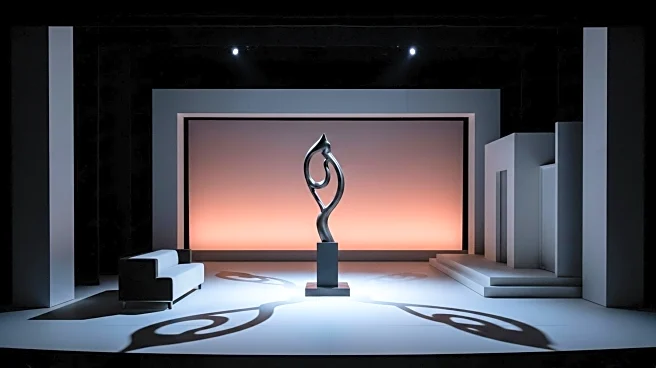What's Happening?
Nia DaCosta's film 'Hedda,' a reimagining of Henrik Ibsen's classic play, premiered at the Toronto Film Festival. The film stars Tessa Thompson as Hedda, a complex character navigating a web of intrigue and betrayal. Set in the 1950s, the story unfolds in a stately English home where Hedda, now married to an academic, hosts a ball that becomes a battleground of personal and professional rivalries. The film introduces a gender twist with Hedda's ex-lover, Eileen, played by Nina Hoss, as a key rival. The narrative explores themes of power, identity, and societal expectations.
Why It's Important?
DaCosta's adaptation of 'Hedda' brings a fresh perspective to a classic play, highlighting the timeless nature of its themes while infusing it with modern sensibilities. The film's exploration of gender dynamics and personal ambition resonates with contemporary audiences, offering a nuanced portrayal of complex female characters. This adaptation could influence future interpretations of classic literature in film, encouraging more diverse and innovative storytelling approaches. The film's reception at the Toronto Film Festival may also impact its distribution and success in international markets.
Beyond the Headlines
The film's setting and character dynamics offer a commentary on societal norms and the constraints placed on women, both historically and in modern times. By reimagining a classic play with a contemporary lens, 'Hedda' challenges audiences to reconsider traditional narratives and the roles assigned to women in literature and society. This approach could inspire further discussions on gender representation in media and the importance of diverse voices in storytelling.












